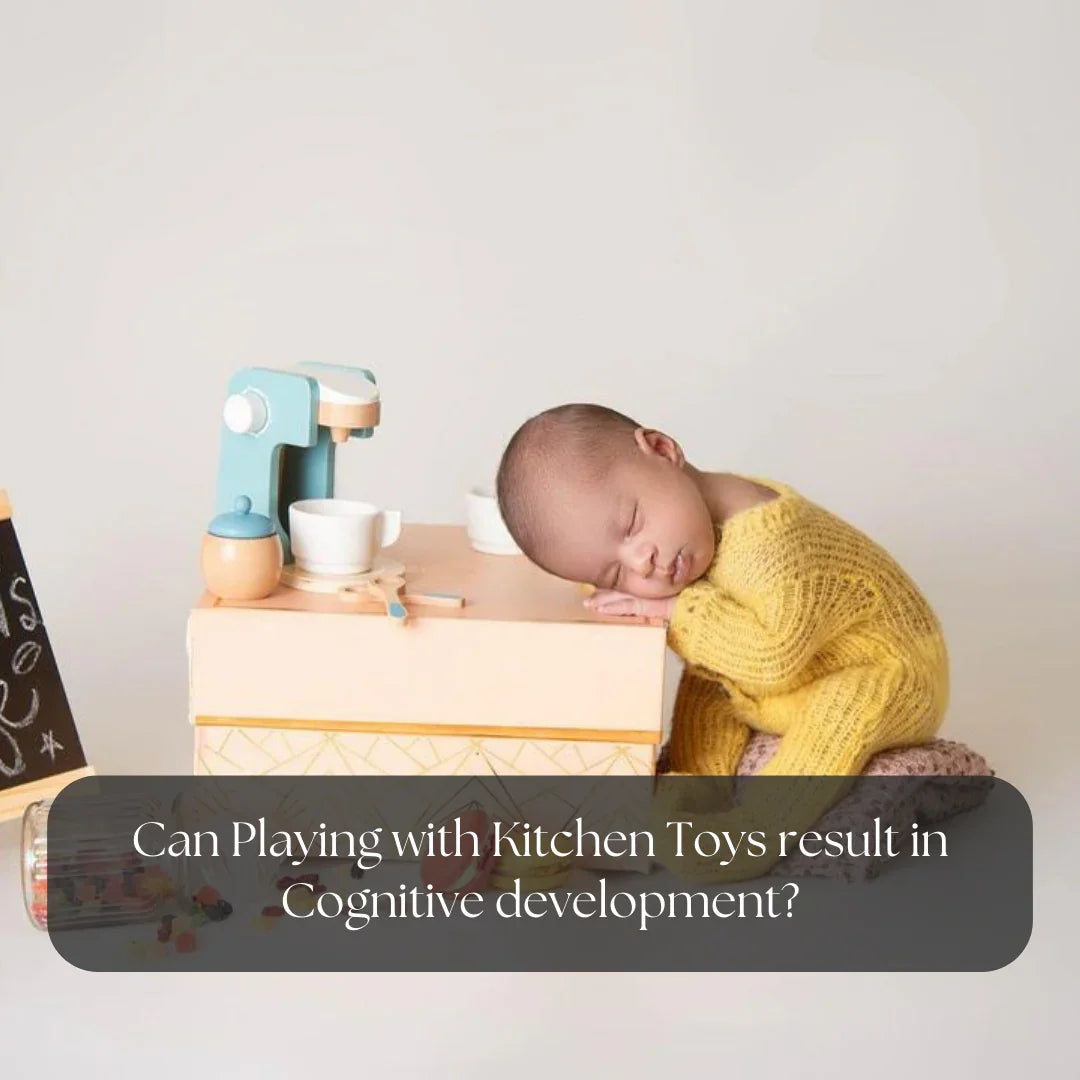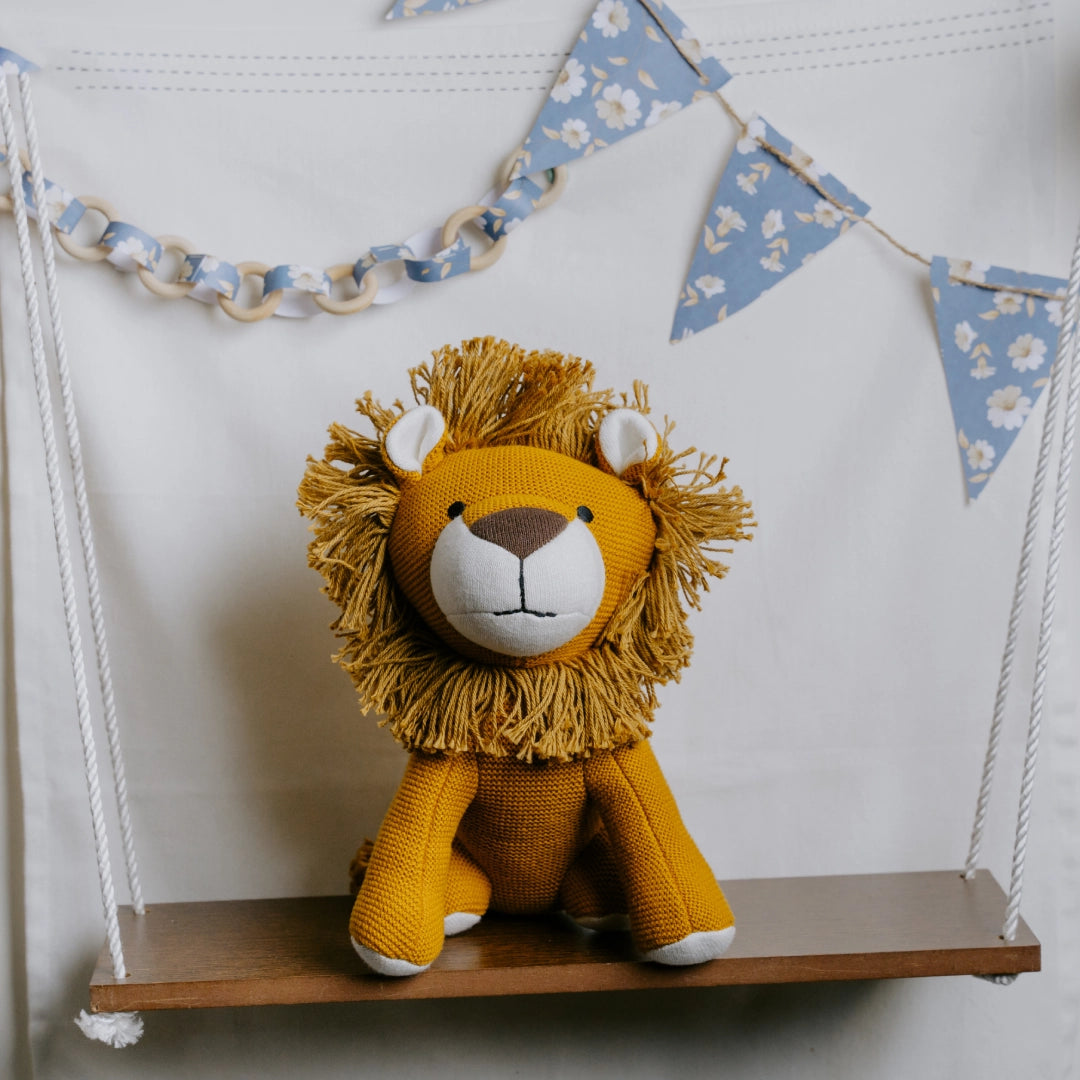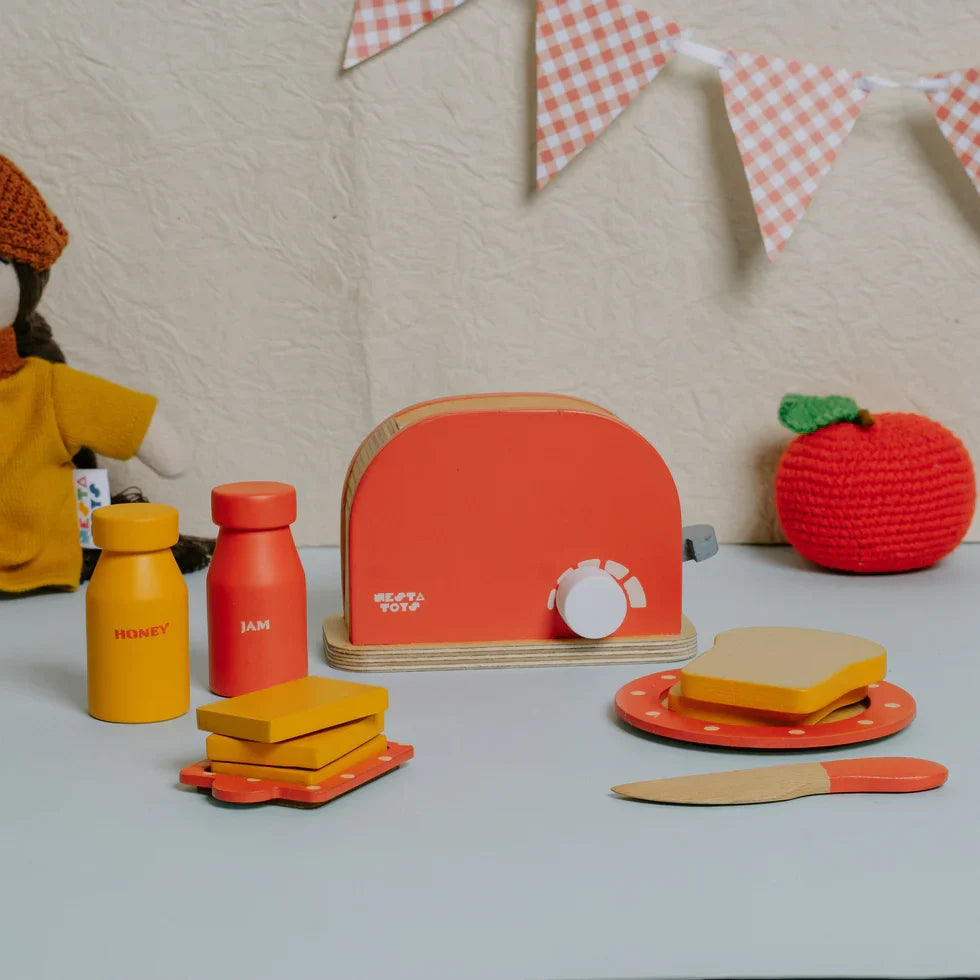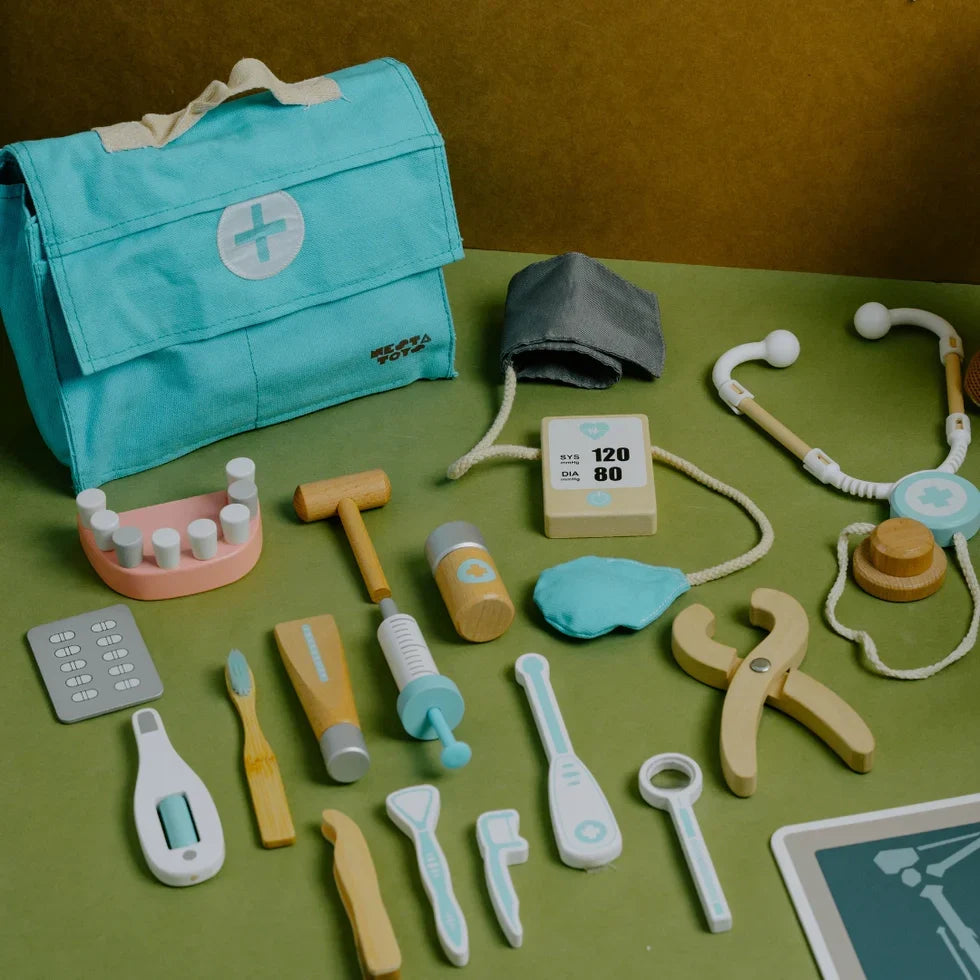Yes, playing with kitchen toys can contribute to cognitive development in children. Here's how:
-
Imaginative Play and Problem-Solving: Kitchen toys provide a platform for imaginative play, allowing children to create scenarios, pretend to cook, and engage in role-playing. This type of play encourages problem-solving skills as children navigate through various tasks such as planning meals, organizing ingredients, and using utensils effectively.
-
Language and Communication Skills: Playing with kitchen toys promotes language development as children engage in pretend conversations, describe their cooking processes, and interact with others during cooperative play. They can learn new vocabulary related to food, utensils, and cooking techniques, expanding their language skills.
-
Mathematical Concepts: Kitchen play can introduce basic mathematical concepts such as counting, measuring, and understanding quantities. Children may use play food and utensils to practice simple addition and subtraction, explore fractions, or learn about different measurements, fostering early math skills.
-
Sequencing and Organization: During kitchen play, children learn to follow steps and sequence tasks in a logical order. They can practice setting up a kitchen, arranging ingredients, and following recipes, developing their organizational and sequencing abilities.
-
Fine Motor Skills: Kitchen toys involve various fine motor movements, such as grasping utensils, stirring, pouring, and manipulating small objects. These activities enhance hand-eye coordination, dexterity, and finger control, which are crucial for future tasks like writing, drawing, and self-care activities.
-
Social and Emotional Development: Playing with kitchen toys can facilitate social interaction, cooperation, and turn-taking among children. They learn to share utensils, collaborate on recipes, and engage in pretend conversations, fostering social skills and emotional intelligence.
-
Creativity and Innovation: Kitchen play encourages children to think creatively and come up with new recipes, experiment with different ingredients, and explore imaginative possibilities. They develop their innovative thinking and resourcefulness as they pretend to cook and problem-solve within the context of the kitchen.
-
Cultural Awareness and Diversity: Kitchen play can expose children to different cuisines, cultures, and food traditions. They may learn about various ingredients, cooking techniques, and the diversity of food around the world, promoting cultural awareness and appreciation.
By engaging in kitchen play, children exercise their cognitive abilities, expand their knowledge, and develop important skills that lay the foundation for future learning and problem-solving.









